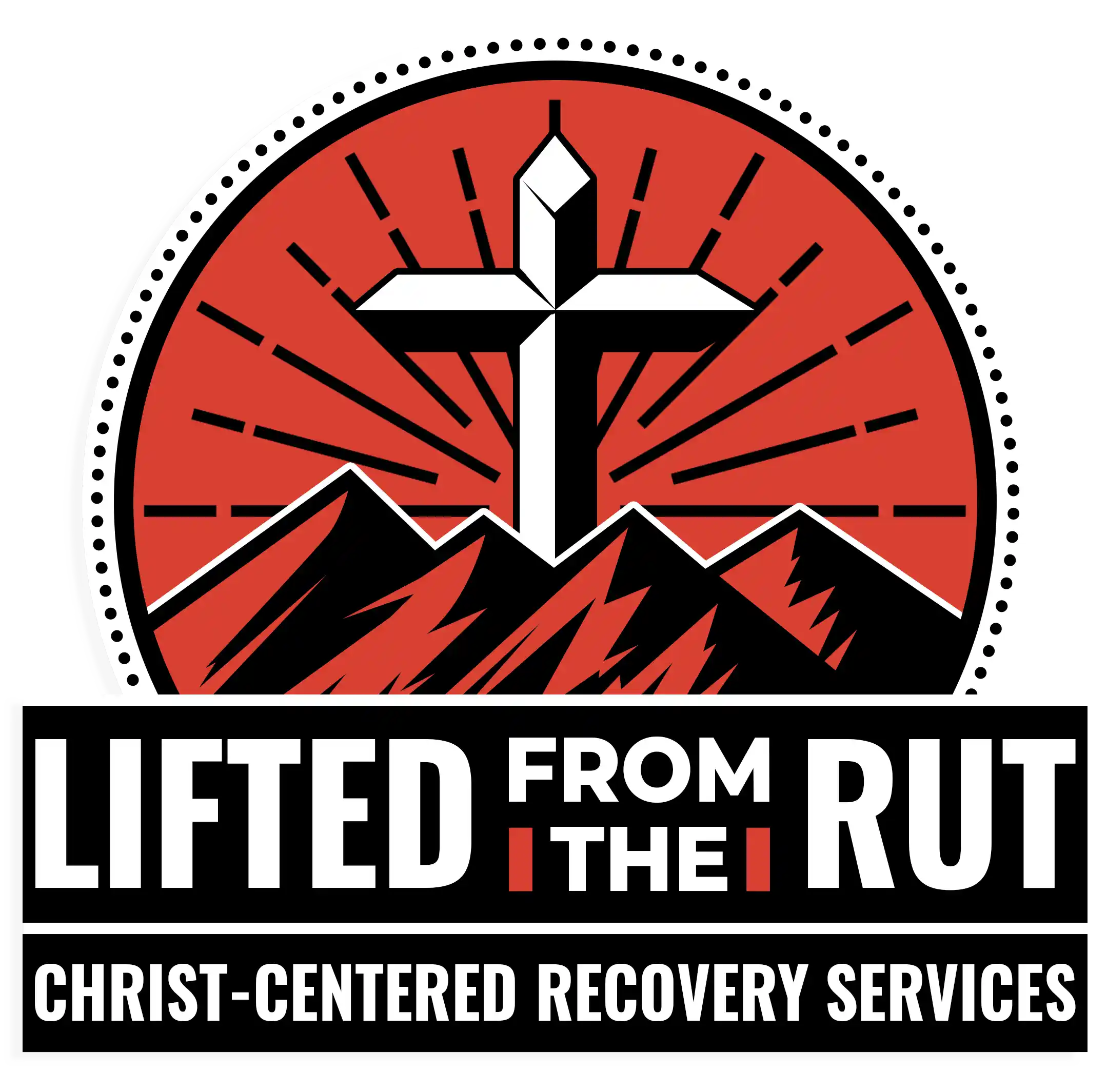The 12 steps of Alcoholics Anonymous (AA) is the foundational framework for personal recovery from alcoholism, but can also be used in overcoming drug addiction. If you practice these principles, it will help you through a structured process of self-examination, spiritual growth, and restitution.
In this article, you’ll learn more about the 12 Steps of AA and how each of them can help you become sober and achieve long-term recovery through the principles of faith.
Philosophy Behind the 12-Step Program
The Twelve Steps recognize that alcohol addiction is an illness, not a moral failing. By acknowledging your powerlessness over alcoholism, you are taking the first step toward recovery.
The 12-step guide you to believe in a higher power, which can be understood in various personal ways. The result of these steps would foster a sense of accountability and connection beyond yourself.
In working the 12 Steps of Alcoholics Anonymous, we rely on prayer and meditation to improve our conscious contact with a higher power, helping us maintain sobriety and personal growth.
Through the steps, you’ll engage in self-reflection, conducting a fearless moral inventory and making amends. This process is grounded in principles of honesty and integrity.
Humility and acceptance are core tenets, guiding you to seek help, let go of ego, and acknowledge your flaws as part of the healing journey.
At LFTR Christian Rehab Services in Littleton, Colorado, we provide a carefully planned, multi-stage approach to intervention to help you and your loved one in breaking the cycles of alcoholism and drug addiction.
Step 1: Honesty
You must admit you are powerless over alcohol and that your life has become unmanageable.
This crucial first step toward recovery helps you confront denial, a significant barrier to seeking help and making progress. By accepting addiction as a condition rather than a personal failure, you foster honesty and initiate the healing process.
Step 1 encourages you to openly discuss your struggles, creating a supportive environment where vulnerability is viewed as strength.
Embracing this step fully allows you to build a foundation of honesty that’s essential for successfully navigating the subsequent steps of your recovery journey.
Step 2: Faith
In the second step, you are encouraged to believe that a Power greater than yourself can restore your sanity. This step shifts your perspective, helping you understand that you are not in complete control and that help is available through a higher power.
By fostering accountability, faith in a God as we understand who supports you on your recovery journey. The phrase “as we understand Him” allows for a personal interpretation of spirituality, making Step 2 accessible to all.
The key element to this step is opening your mind to the possibility of change and growth in your recovery process.
Step 3: Surrender
Based on the abstinence recovery model, you should have a profound decision: to turn your will and life over to the care of a higher power as you understand it.
This step encourages you to surrender control, acknowledging that self-will has often led to negative outcomes. By letting go and trusting in a higher power, you open the door to healing and personal growth.
It is crucial to understand that surrender doesn’t mean giving up, it is an empowering act that allows you to draw strength and guidance from something greater than yourself.
Step 4: Soul Searching
Step 4 of AA encourages you to conduct a searching and fearless moral inventory, examining your thoughts, behaviors, and past actions objectively. This self-reflection process helps identify personal values, goals, and how addiction has impacted your life and relationships.
Document your findings in writing to facilitate deeper understanding and accountability. Soul searching in Step 4 promotes personal growth by aligning intentions with behaviors, allowing you to recognize patterns that may hinder recovery.
Be honest and vulnerable, acknowledging your flaws and mistakes. This is crucial for healing and moving forward in your journey, as you make direct amends to such people wherever possible.
Step 5: Integrity
You will be encouraged to admit the exact nature of your wrongs to God, yourself, and another person. This act of vulnerability and honesty strengthens your commitment to sobriety.
By speaking truthfully about past actions, you can alleviate guilt and shame, facilitating emotional healing. Sharing your moral inventory with someone else promotes trust and connection within the recovery community.
As you make amends and align your actions with your values, you will foster a sense of self-worth, and it will help you live authentically and find renewed purpose in your life.
Step 6: Acceptance
In this ste,p you are ready to let go of character defects that have held you back. This pivotal moment is about acknowledging your flaws and becoming open to change.
Acceptance fosters humility and accountability, helping you grow in profound ways. You are no longer fighting against yourself but instead embracing who you are while striving to become your best self.
Step 6 encourages you to welcome spiritual transformation by relinquishing control and trusting in a higher power.
Through acceptance, you will cultivate the willingness necessary for lasting recovery and personal development.
Step 7: Humility
In this step, you acknowledge your limitations and seek help from a higher power to remove your shortcomings.
By letting go of ego and pride, you open yourself to personal growth and the support of others. Humility allows you to recognize your place in the world and the importance of community in your healing process.
As you practice vulnerability and ask for assistance, you strengthen your connection with others and your higher power. Step 7 encourages you to embrace the power of humility, understanding that it’s not a weakness but a crucial aspect of your ongoing recovery and transformation.

Step 8: Willingness
At this point, you’ll have to create a list of all individuals you have harmed, reflecting on the impact of your actions. This step emphasizes the importance of being willing to make amends, fostering a sense of responsibility, and personal growth.
By listing those you’ve wronged, you will gain clarity on the consequences of addiction, enabling a deeper understanding of how your behavior has affected others.
Willingness in Step 8 signifies your commitment to change, highlighting the significance of taking proactive steps towards reconciliation.
This step serves as a bridge, reinforcing the value of sincerity and genuine intention in your recovery journey.
Step 9: Forgiveness
Actively seeking forgiveness involves making direct amends to people you’ve harmed, except when doing so would injure them or others.
You will take responsibility for past wrongs, demonstrating your commitment to change. Forgiveness is key to letting go of resentment, a significant recovery barrier that may trigger relapse.
Making amends goes beyond apologizing; it is about showing a genuine intention to make things right. Engaging in Step 9 promotes emotional well-being by confronting your past and finding peace.
Step 10: Maintenance
After you have reached a significant milestone in your recovery journey, it is essential to recognize that the work does not end here. Step 10 emphasizes the importance of continued personal inventory, encouraging you to regularly assess your thoughts and behaviors to maintain self-awareness and accountability.
This step involves promptly admitting wrongs as they occur, promoting immediate action to address mistakes and prevent the accumulation of guilt or resentment. Regular self-check-ins are crucial for recognizing areas that need improvement, allowing you to stay vigilant about your recovery progress and personal growth.
Step 11: Making Contact
In this step, you are encouraged to seek through prayer and meditation to improve our conscious contact with God as we understand Him, praying only for knowledge of His will for us and the power to carry that out, emphasizing a personal and spiritual connection that supports recovery.
It is about improving your spiritual awareness and understanding your life’s purpose. By maintaining an open dialogue with your higher power, you’ll receive guidance and strength to navigate recovery challenges.
Engaging prayer and meditation foster a sense of peace and personal spiritual growth. This step emphasizes the importance of nurturing your spiritual side as part of the journey.
Through consistent practice, you will develop a more profound relationship with your higher power, allowing you to draw upon that connection for support and direction as you continue along the path of recovery.
Step 12: Service
Step 12 gives you the power to carry the message of hope to alcoholics – the message of recovery to those in need.
Through service, alcoholics will get a spiritual awakening and find a renewed sense of purpose by practicing these principles in all our affairs.
Share your experiences and insights to help others, while simultaneously reinforcing your own commitment to sobriety and recovery principles, an indicator that you tried to carry this message to alcoholics that they too can attain sobriety.
Engaging in service activities within the community or AA will enhance your feelings of self-worth and belonging.
How to Get Started with AA
To begin your Twelve Steps of Alcoholics Anonymous journey, attend a local 12-step meeting where you can listen to others who have faced similar struggles. Approach the program with an open mind; you do not have to accept all the steps right away.
Reading AA literature like the “Big Book” will deepen your understanding of the principles behind this transformative process.
Consider connecting with a sponsor—an experienced member who will guide you through the steps and provide support.
Regular meeting attendance fosters essential community backing that will help you stay committed to your sobriety goals as you progress through the alcoholics anonymous program.
Final Thoughts from LFTR Christian Rehab Services
At LFTR Christian Rehab Services, we provide comprehensive faith-based addiction treatment designed to help individuals and families affected by addiction restore hope and relationships. Our treatment programs in Littleton, Colorado cover pre-intervention planning involving your family and friends, strategic treatment plans tailored for your loved one and family, transporting you to a rehab facility, structured family coaching programs, and post-treatment recovery coaching and aftercare plans.





